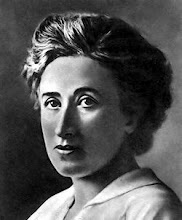Let's talk about democracy.
You might have seen an item by Michael Duffy in he SMH on the weekend. Duffy discusses the claim that "the internet has healthily diluted the political power that used to be concentrated in the hands of those who were older, wealthier, and better connected than the average citizen." He relies upon a book by Matthew Hindman called The Myth of Digital Democracy to claim that the internet has in general made little impact.
The central thesis is that who speaks, and who gets heard is still fundamentally the same. For example, while GetUp! might reach a big audience, so did street stalls with paper petitions. People like me who blog were also letter writers to newspapers. People who talk a lot about politics in chat or twitter do it a lot in the pub.
The thesis has some merit - however, it is not quite as simple as that. True the same people are still mostly doing the same things just in different ways. But significantly the internet means that a individual is no longer denied a voice. The impact is at the margins rather than a fundamental reform. And it is all too easy to forget how in earlier generations the printing press was the most significant weapon of revolutionaries. Simon Sebag Montefiore's Young Stalin is full of the stories of the moving, defending and loss of printing presses.
You don't notice the benefits of the internet in democracies as you do in states that aren't democracies.
This is all a long intro to segue to the fact that I've been included in an online list of the censorship who's who. I'm sure the Crikey guys would be thrilled to see that I'm referred to as having contributed i the main stream media because I have written in Crikey - they don't think of themselves as MSM.
Anyhow the site also has a who's who on a Bill of Rights. Just to confuse matters I'm absolutely supportive of a Bill of Rights. I'm ultimately supportive of a Bill of Rights that would be incorporated in the Commonwealth Constitution, but I can see all the dilemmas that poses.
What I can't stand is all the opposition to a Bill of Rights as just an Act of Parliament. Lots of very idiotic comments running around about either over-empowering judges to "make law" (or at least overturn law) or about constitutional problems if courts lower than the High Court were empowered to make decisions about the constitutionality of laws.
It really is possible to hasten slowly. Step one would be to pass an Act establishing Basic Human Rights in Australia. In that Act you authorise a statutory body (e.g. HREOC) to report annually to Parliament on whether any rights have been affected by legislation, and empowering them to conduct enquiries and receive complaints. Parliament doesn't have to do anything - but the process holds the Parliament and Government to account to voters for the contraventions. (You can expect they will react by varying one or other Act).
Once we all get comfortable with that you change the Act so that the High Court can decide if a new piece of legislation offends the Act, and specify that the latter Act is void if it is not re-enacted by the Parliament within three months (or twenty sitting days) of the Court's decision. Once again Parliament might decide to amend the Rights Act.
Once that becmes stable you put the referendum to adopt the final Act as a set of Constitutional rights.
Not hard really. And I suspect that the filter would be legal under any of them.
Monday, March 23, 2009
Subscribe to:
Post Comments (Atom)




No comments:
Post a Comment